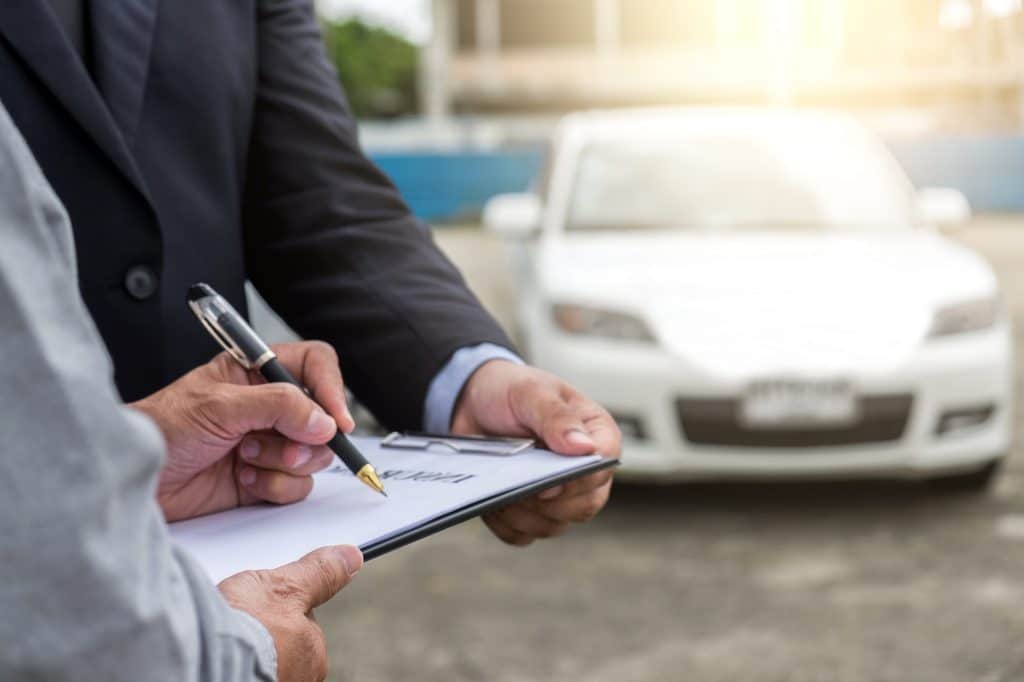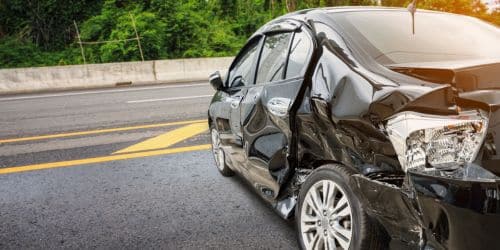In the United States’ (U.S.) New Jersey, the state records hundreds of deaths and fatalities from road accidents every year. These statistics underscore the havoc that vehicle accidents wreak on the lives of the people of the Garden State, as it’s often called. However, while destroyed lives and properties get the most press after a vehicle accident, businesses also pay the price, often not reflected in the headlines.
Statistics from the LA Times indicate that accidents cause up to USD$1 trillion in losses to the U.S. economy annually. Of the amount mentioned, only about a third of the losses is the actual cost of the accidents; the rest is a result of compensation for loss of life, pain, and decreased life quality resulting from the injuries sustained in the accident. This report demonstrates that the most common cause of collisions is speeding, followed by drunk driving and distraction.
Drunk driving leading to collisions with injured victims is a grave offense. This reckless behavior poses a significant threat to public safety, resulting in immediate and enduring impacts. It significantly heightens the risk of fatal accidents, endangering innocent lives.
Employers can be held liable for their staff’s actions, which falls under the legal concept of “vicarious liability” or “respondeat superior.” However, the specific laws and regulations governing employer liability for employee actions can vary by jurisdiction. Therefore, it is important to hire an experienced car accident lawyer to determine legal rights and responsibilities.
As an entrepreneur, take seriously the data mentioned above. If you own a company that has vehicles, it’s best to be mindful of how car accidents can possibly affect your business. Keep on reading to learn more.

- Increased Insurance Premium Rates
It’s important to note that annual increases in insurance premium rates are typical across the industry, depending on how your insurer estimates risk factors. In New Jersey, for example, a record of accidents has been attributed to an increase in insurance premiums by over 80%. Vehicle accidents, therefore, increase the risk factor and, thus, the amount your business will be required to pay yearly.
New Jersey operates on a no-fault, split-limit basis of 15/30/5 regarding vehicle insurance. A no-fault legal basis states that your insurance claims are paid for by your insurance policy regardless of who’s on the hook for a vehicle accident. The split limit basis splits the amount liable for bodily injury or damage to the property into three groups:
- USD$15,000 for each person injured in an accident;
- USD$30,000 for all people injured in an accident; and
- USD$5,000 for all property damaged in an accident.
At a minimum, all business vehicles must have this policy, also known as residual bodily injury and property damage (RBI-PD). Increased risk factors, therefore, impact the amount you need to fork out for insurance coverage, affecting your business’s bottom line.
- Loss of Productivity
Some of the ways in which vehicle accidents affect your business include the loss of productivity. Workers may miss work or function less optimally after being involved in a vehicle accident. In the recovery period, you may need to train new people to take over the role played by the injured employee, which takes time and resources and inevitably affects productivity.
In some cases, other employees might need to step in and cover for the injured employee, affecting their docket performance. To reduce the potential loss of productivity, ensure that your business puts policies like fatigue risk management, stringent rules governing the use of mobile phones while driving, and in-vehicle monitoring systems to ensure driver compliance and monitoring.
Establish clear guidelines for work hours and rest breaks to prevent driver fatigue. Encourage employees to manage their workloads effectively and recognize signs of fatigue. Regarding mobile phone usage, prohibit their use while driving, allowing only hands-free devices. Implement strict penalties for violations, such as fines or disciplinary actions, and encourage using voice-activated technology for calls and messages.
For monitoring, install in-vehicle systems that track and record driver behavior, including speed, braking, and acceleration. Use a global positioning system (GPS) tracker to monitor routes and locations. Implement real-time alerts for risky driving behaviors like sudden braking or excessive speeding. Regularly review collected data, provide feedback to drivers, and use it for training and rewarding safe driving practices.
- Unplanned Payouts
Property damage is another factor to consider besides the threat to life that’s commonplace in vehicle accidents. One way vehicle accidents affect your business can be in the form of payouts based on the damage vehicle accidents cause and the liabilities that come after that. If you or your driver is at fault during an accident, your insurance firm will only pay to the extent the policy covers. Any extra amount you are liable for demands an out-of-pocket payment.
Also, you may need to pay extra to cater to the employee’s injuries or third-party properties and lives impacted by the accidents, be it totaled cars, houses, and others. Some insurance firms estimate that a fleet of 1000 vehicles may incur hundreds of thousands and sometimes millions per year for property damage and hundreds of thousands for fatal injuries. Depending on your insurance coverage, some of these costs may need to be paid out of pocket, impacting your business’ revenue.
Lastly, costs involved with legal services, accident investigation, record-keeping, and fines can compound and affect the business’ revenue.
- Vehicle Accidents Have Legal Repercussions On Your Business
Under the doctrine of respondeat superior, or vicarious liability, an employer is responsible for the actions of their employees while they’re in the scope of employment, especially if the actions lead to injury or harm to the other person. Many companies have had to carry legal liability when their drivers have been involved in vehicle accidents while at work.
You’ll likely be liable if your employee engages or fails to engage in actions that lead to a vehicle accident. Depending on the scope of the accident, you may have to part with vast sums of money to repair the property or settle with the accident’s victims. Keeping a comprehensive insurance policy to cover you and your employees in such events is vital.
- Damage To Your Business Reputation
It’s common for most brands to have their direct contacts emblazoned onto a vehicle’s side asking road users to contact them if they see the driver overspeeding or driving erratically. As a business owner, your reputation connects to many factors, the key being safety. Once your reputation is in tatters, repairing it’ll take a lot of work.
A good example could be a transport and logistics company. Customers will be wary of boarding buses or entrusting their packages to companies that have constantly been in accidents. Customers shunning your business will affect your bottom line. Far from customers, there’s the possibility that shareholders may lose trust in your business owing to the constancy of these accidents too. Vehicle accidents can negatively impact your revenue and sometimes put you out of business.
Parting Shot
Suppose you run a business with a fleet of vehicles. In that case, you need to implement a driver safety program and constantly monitor the drivers’ performance on the road to reduce the risks of accidents. You need to extensively interrogate the driving records of potential employees before hiring them. And put in place measures that’d see your drivers attend performance-based driving courses and refresher training at set intervals. Some of these steps would significantly reduce the risk of accidents and thus increase productivity.






